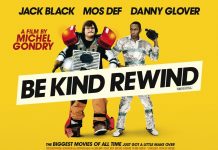 Joe Konrath published a thoughtful piece yesterday on fair use and copyright. I thought he was spot on and made some excellent points.
Joe Konrath published a thoughtful piece yesterday on fair use and copyright. I thought he was spot on and made some excellent points.
He started by talking about copyright as it applied to authors, not to the industry. Not surprisingly, the publishing industry (print, video and music) all focus on copyright as it applies to them and their needs and wants. Konrath points out that copyright doesn’t belong to an industry. It belongs to the creator of the work, and that industries often exist to exploit the artists that the work creates.

You can agree or disagree with him on the use of “exploit,” but I like his point. Big companies (e.g., media companies) are often quick to defend copyright in cases where it may or may not serve their interests. Fanfiction is a commonly used example of this. I know of a fair number of people (myself included) who started watching a show because of either fanfiction or fan activity. As an example, I finally started watching Supernatural because there’s a huge crossover between their fandom and other fandoms I follow. I’ll probably buy the Season 8 DVDs when they come out, and quite possibly a season pass for Season 9. Not to mention some of the tie-in novels.
Thank goodness for fanfiction and fan activity! Now, Supernatural is one of those franchises that understands that fans are good for their show. If only all of them got it.
Konrath covers this obliquely in his post when he covers his interpretation of “fair use”:
When I write something, I believe I should be the only one allowed to make money from that writing (unless I assign rights to that work). I believe I should have the sole ability to do this for a reasonable length of time.
But anyone who isn’t making money from my work should be allowed to do whatever they like with it.
Trade it, copy it, share it, borrow it, create derivative works, etc. As long as you aren’t doing it for cash, I’m okay with it.
If you use my work to do something that does make money, or you use a significant amount of my work in order to create a work of your own with the intent to make money, I ask you to get my permission.
Right on! He does go on to say that if someone makes a movie of one of his works in a nationwide film release, he’s got a problem with it, and he’ll sue. Then he surprised me by turning around and saying that a student-made video on YouTube (without monetization) was OK with him. I agree with him on that, but I was pleased that he felt that way. I’m pretty sure few authors would agree with him, but I put that in a similar category as fanfiction. If people see the video and like it, there’s a good chance they’ll go buy the book. Just like we buy the books of movies we see in the theater.
There are more examples in his post, including some thoughts on torrents and piracy that many will disagree with. I know that we don’t live in an ideal world and that everyone won’t just play nice and get along. However, I have to think there is room for fair use, copyright and reader’s rights in here somewhere. If we can just find a balance that respects everyone.
Or is that just me being too optimistic?

































I don’t think Konrath’s opinions are surprising; they are pretty consistent with where he has been for some time. They are also reasonable. His point of view does conflict with what you might hear from the leadership of associations like the Authors Guild, but Konrath is no fan of the AG.
The panel that inspired Konrath’s post included representation from the U.K.-based Publishers Association and the Copyright Clearance Center. It would have been surprising if either organization had said “We need to rethink copyright”, even though we most certainly do. One of the PA’s strategic priorities is “stopping piracy”, even though we have little evidence that piracy is something that costs publishers money.
No matter what associations claim, very few people say that copyright doesn’t matter. Konrath doesn’t say that, either. In the United States, copyright is granted as a limited right to encourage the creation of new works. That’s a good thing. But the right should be truly limited, both in length and in its consideration of what is fair use.
No author is motivated to write something because he’ll earn revenues for life plus 70 years. The only entities that care about terms that long are the companies assigned the rights. Hoarding those rights for all uses and a multiple of lifetimes discourages innovation, the thing that copyright was intended to promote.
Brian: In fairness to Juli Monroe, the author of this piece, she didn’t write the headline – I did. (Or rather, she wrote a headline but I tweaked it a bit.)
Darn editors! They’re always changing my words. Where’s the fair use in that! 🙂
Actually, I know Dan’s got my back to bring in more readers. And I agree with you, Brian. Copyright hoarding is becoming a huge problem *cough* Disney *cough*
Someone (I think it was Kristine Rusch) recently wrote a piece on copyright and estate planning for authors. It was a daunting piece, and definitely made me think about what I wanted to have happen after I die. And one of the things I don’t want is for my copyright to continue on and on and on and on.
Thanks for the thoughtful take on my piece.
I encourage fan fiction. I love it when fans take some ownership of the IP and want to play with it.
I once had some fans email me asking how to cosplay my characters, and thought it was the coolest thing.
When people love something, there can never be too much of it.
@Joe. You are most welcome! And allow me to have a brief fangirl moment as I squee about you commenting on my post.
Ahem. Back to serious writer mode now. I’m not surprised that you encourage fan fiction. It’s completely in line with everything else you write. Curious, do you have a formal fanfic policy somewhere? I’ve noticed authors are starting to publish those, and I think it’s a good idea.
Hi, Juli.
Point me to a formal fanfic policy. I’d love to take a look at it.
My policy is: go ahead, as long as you release it for free. If you want to try and make some money from it, please ask me and we’ll talk.
I agree 100% with Konrath on this one, and I applaud his attitude. Cory Doctorow is another author who shares this view. I have seen him even write blog posts on his own blog to share fan translations and other derivative works. I think for awhile he even had a Creative Commons license which allowed for-profit derivatives if you were in a developing country!
One thing I will say to Mr. Konrath if he is still reading this thread is that I do know from personal experience that this sort of attitude does win fans. I try and focus my ebook spending these days on authors who don’t burden the books with DRM and all sorts of nonsensical restrictions. I do pay for my books, and I treat authors fairly. It’s nice to have that reciprocated and to know that nobody is going to come after me for behaving like a regular person.
Great summary of Konrath’s article. Thanks for pointing it out to me. Great discussion here, too.
@Joe, here’s Jim Butcher’s
http://www.jim-butcher.com/posts/2010/new-fanfiction-policy
Using a Creative Commons umbrella seems to be the way authors are going these days. It seems sensible and keeps everyone’s rights in mind.